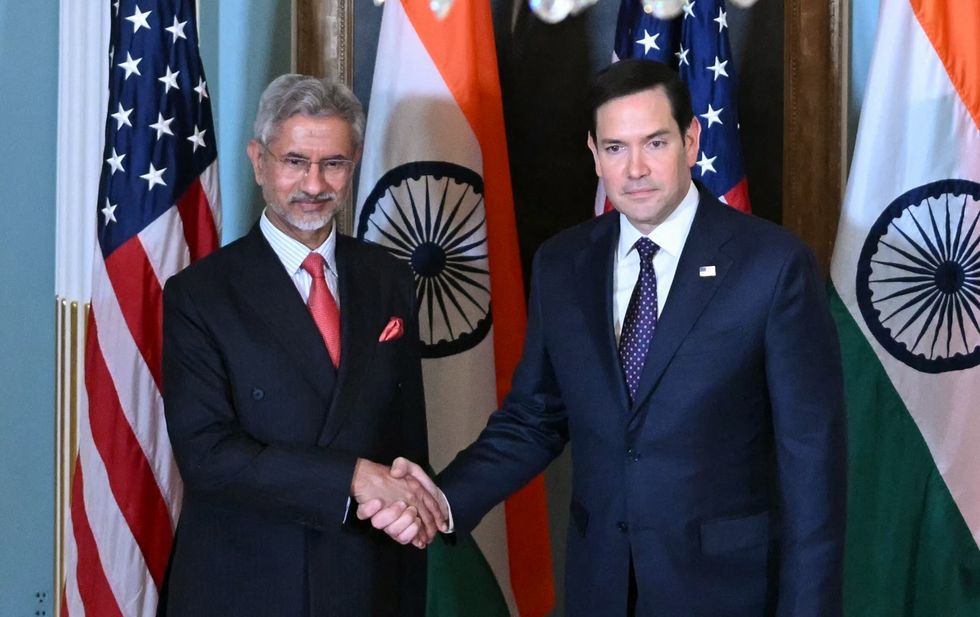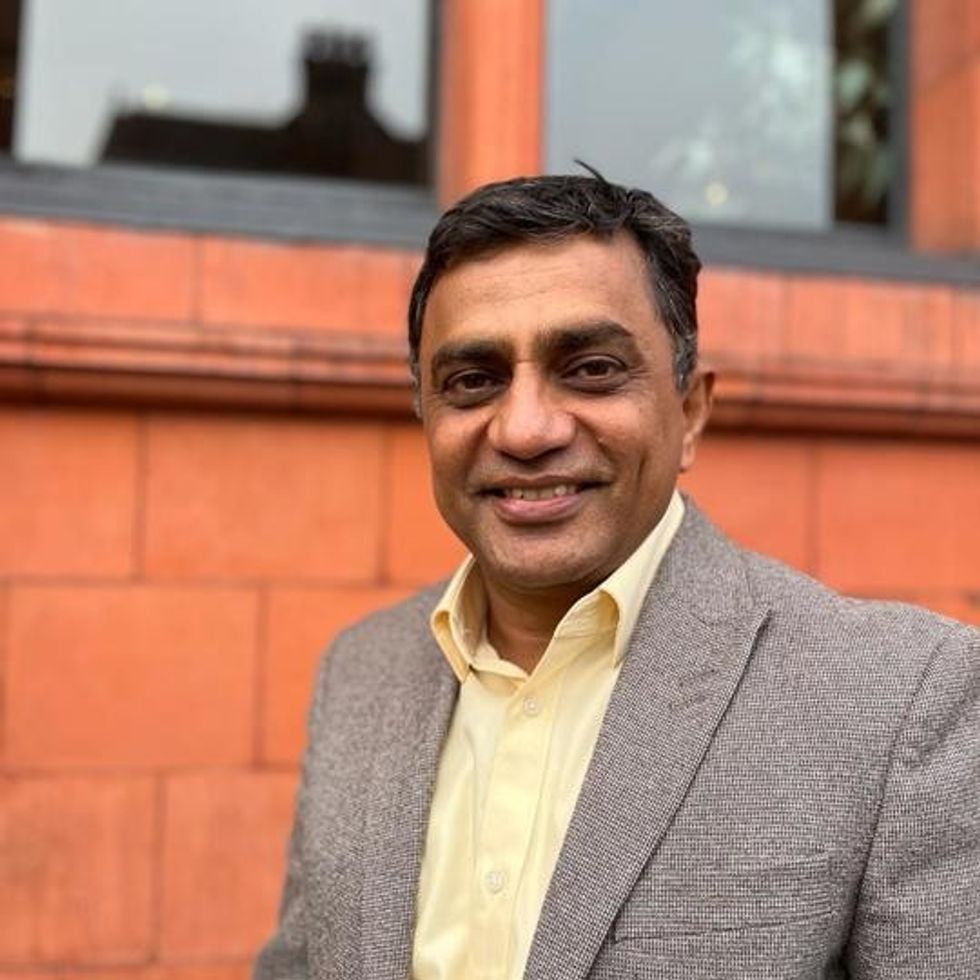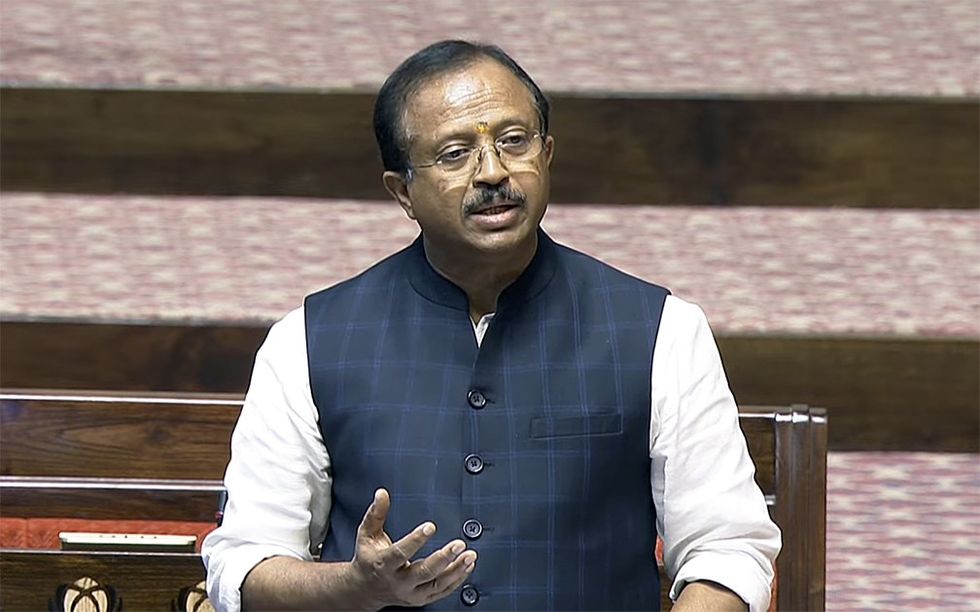The benefits of yoga have been extolled by fans and celebrities alike for decades, but now the fashionable exercise and multi-million pound industry is embroiled in a bitter fight to create a new national standard for teachers.
It follows the call from the British Wheel of Yoga, the Sports England-appointed governing body, to regulate yoga qualifications in a bid to protect students from injuring themselves.
The year-long National Occupational Standards (NOS) review by Skills Active, the Sector Skills Council for Active Leisure, Learning and Wellbeing, will help to define the skills and knowledge which are required to work in the field.
In the UK, it is a largely self-regulated industry where some teachers train for years while others attend just a few hours of yoga classes before they begin teaching the practice.
Opponents of the move have hit back, including Satish Sharma, the general secretary of the National Council of Hindu Temples, who argues yoga is “a religion” and and cannot be regulated.
In an open letter to Skills Active, Sharma wrote: “Yoga is a fundamental part of the Hindu religious and spiritual practices. We have family lineages of priests and gurus who have been practising and preserving this body of knowledge for millennia.
“Under no circumstances will we permit any of our religious practices to be assessed, defined or judged in any manner which curtails or even presumes to pass comment upon our traditions, scriptures or religious practices. This is not negotiable.”
Swami Ambikananda, a Hindu monk, yoga teacher and chairwoman of the Traditional Yoga Association, believes the call is premature as there is a lack of evidence about people sustaining injuries because of poorly-trained teachers.
She told Eastern Eye regulation would be tantamount to government interference in a religion.
“I am not saying that to do yoga you have to convert to Hinduism… but what cannot happen is the government decides what yoga is and creates a standard. It doesn’t improve your practice, it creates a level of bureaucracy that you end up paying a tax for. It’s tick box exercises.
“If the British Wheel of Yoga was serious about improving the level of teaching, they would have said: ‘Let’s fund some research and see where the areas of training could be improved’. They are giving anecdotes and no evidence.”
Ambikananda was introduced to yoga when she was a young mother suffering from post-natal depression and trained in south Africa, England and later in India.
She claims the plan would create a two-tier system because the qualification would not be mandatory, therefore “creating a public perception that some teachers are good and some aren’t.”
Furthermore, she has branded the move neocolonialist and insulting to Hinduism. “They want to take a little bit of our philosophy and our theology now, re-package it and re-sell it into their own image, and sell it back to us. They are determining everything and that’s colonialism.”
Paul Fox from the National Wheel of Yoga disagrees and asserts that yoga teachers have a duty of care towards students and need to have the knowledge required to modify postures.
“Anecdotal evidence is that people are being injured and the National Occupational Standards would help perhaps to set a minimum quality threshold which would protect students going forward,” he said.
“There are four awarding organisations recognised by Ofqual that offer yoga teacher training, so there are people offering regulated qualifications to a standard. But there are a lot of other people that are offering unregulated qualifications which aren’t related to any set standards… and are completely variable.”
Fox told Eastern Eye that the popular practice, which has been spread around the world, was a great credit to India.
Naomi Canton, a yoga student in London, said she had mixed views about the proposal. “On the one hand, I think yoga should be regulated to prevent unqualified and untrained teachers teaching it. But on the other hand I am not sure it can be regulated,” she said.
“Yoga is much more than the asanas [postures]. There are in fact five principles of yoga of which the asanas are just one.
“The other four are pranayamas [breathing exercise], a vegetarian diet, positive thinking and meditation, and proper relaxation. How do you regulate all of that? That would be like regulating a religion. I don’t think it’s possible.”
She added she did not want to see a “sanitised secular yoga to get the stamp of approval”.
“Yoga is a way of life rather than a weekly class. They could try and regulate the way the asanas are taught only, but even then there are so many variations of posture and different schools of yoga (for example, Iyengar, Hatha, Bikram, Hot, Vinyasa). Who would decide which was the correct one?”

















 US secretary of state Marco Rubio with India’s foreign minister Subrahmanyam Jaishankar in Washington DC last Tuesday (21)
US secretary of state Marco Rubio with India’s foreign minister Subrahmanyam Jaishankar in Washington DC last Tuesday (21) Anit Mukherjee
Anit Mukherjee V Muraleedharan
V Muraleedharan Dr Sasikumar S Sundaram
Dr Sasikumar S Sundaram


 Workers clean communication equipment aboard INS Surat on January 11
Workers clean communication equipment aboard INS Surat on January 11